GABA Supplement Interaction Risk Checker
Check Your Supplement Risk
Based on current research from Stanford University and FDA studies, this tool assesses potential risks when combining GABA supplements with sedatives or other CNS depressants.
Many people take GABA supplements hoping to reduce anxiety, improve sleep, or calm their nerves. But if you're also on a sedative - like Xanax, Valium, or even sleeping pills like zolpidem - you might be wondering: Is it safe to mix them? The short answer? Probably. But not for the reason you think.
What GABA Actually Does in Your Body
Gamma-aminobutyric acid, or GABA, is your brain’s main calming chemical. It works by slowing down overactive nerve signals, which is why drugs like benzodiazepines and barbiturates target GABA receptors to produce sedation. When GABA binds to GABAA receptors, it opens chloride channels, making neurons less likely to fire. That’s how you feel relaxed, sleepy, or even numb to stress. But here’s the catch: the GABA you swallow in a pill doesn’t act the same way as the GABA your brain makes. A 2012 study in Neuropharmacology tested 42 people who took oral GABA supplements. Researchers measured GABA levels in their cerebrospinal fluid - the fluid surrounding the brain and spinal cord. The result? No meaningful increase. That’s because GABA is a water-soluble molecule that can’t easily cross the blood-brain barrier. In fact, less than 0.03% of oral GABA ever reaches the brain. The rest stays in your bloodstream or gets broken down in your gut. So if GABA supplements don’t reach your brain, how do they work? Some researchers think they might affect the vagus nerve through the gut-brain axis. Others believe any calming effect is placebo. Either way, direct brain action? Unlikely.How Sedatives Actually Work
Prescription sedatives like alprazolam (Xanax), diazepam (Valium), and lorazepam (Ativan) are designed to penetrate the brain quickly. They bind directly to GABAA receptors at specific sites, making GABA work 200-300% more effectively. That’s why a 5 mg dose of Xanax can make you feel drowsy within 30 minutes - and why taking too much can slow your breathing to dangerous levels. Alcohol does something similar. It enhances GABA activity while also blocking excitatory signals. That’s why mixing alcohol with sedatives is one of the most dangerous combinations you can make. The National Institute on Alcohol Abuse and Alcoholism (NIAAA) says this combo increases CNS depression risk by 45%. But here’s the key difference: while prescription sedatives and alcohol flood your brain with GABA-enhancing effects, GABA supplements barely tickle the surface.The Real Risk: It’s Not GABA - It’s Other Supplements
If GABA supplements don’t reach your brain, why do some people report feeling extra sleepy when they take them with sedatives? Chances are, they’re not taking pure GABA. They’re taking something else. Supplements like valerian root, kava, and phenibut do something GABA doesn’t. Valerian boosts your brain’s natural GABA release. Kava blocks GABA from being reabsorbed. Phenibut is a synthetic GABA analog that crosses the blood-brain barrier easily. These substances do interact with sedatives - and they’ve been linked to serious drowsiness, falls, and even hospital visits. A 2020 review in Phytotherapy Research found that combining kava with zolpidem (Ambien) increased sedation by 37%. That’s a real, measurable risk. But when researchers looked at pure GABA supplements, they found no such effect. The FDA’s adverse event database from 2010 to 2022 recorded only three possible cases of GABA supplement interactions with sedatives. None met the standard for causality. Compare that to over 12,800 documented cases of dangerous interactions between opioids and benzodiazepines - a combination the FDA now warns about with black box labels.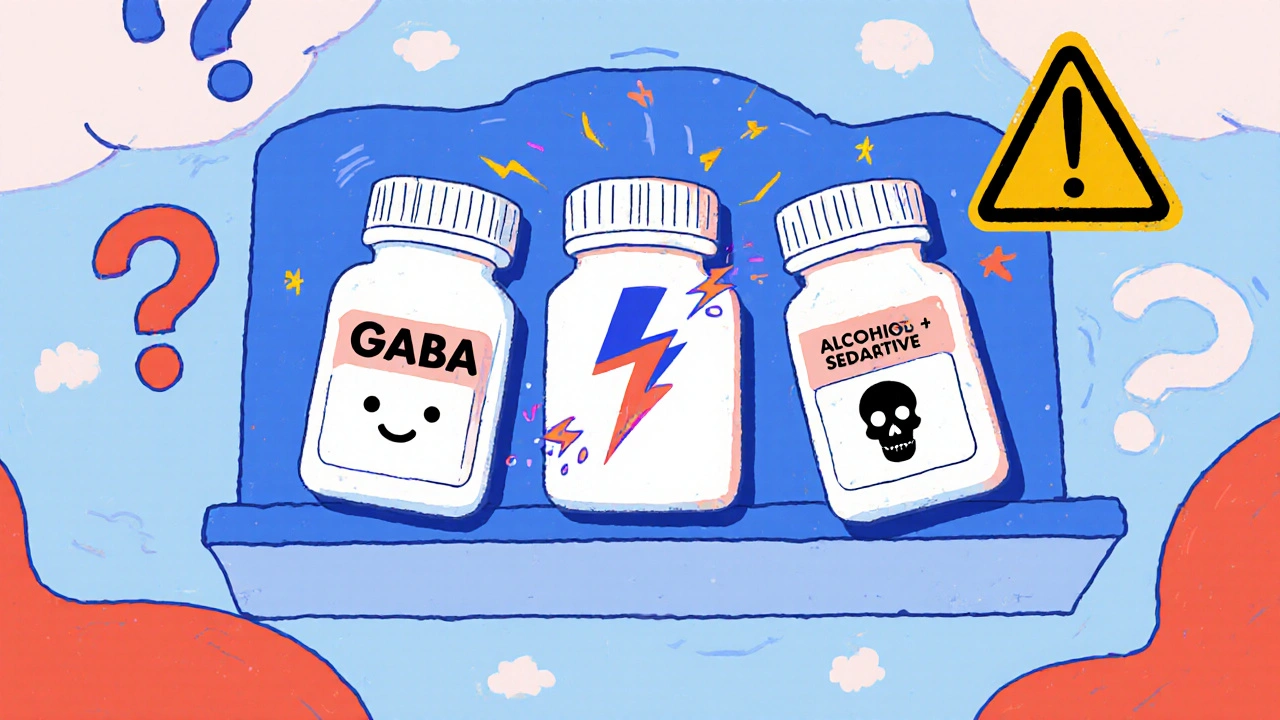
What the Experts Say
Dr. Adrienne Heinz from Stanford University put it plainly: “While theoretically concerning based on GABA’s mechanism, there’s virtually no clinical evidence that oral GABA supplements significantly enhance CNS depressant effects of benzodiazepines.” The American Academy of Neurology’s 2022 position paper concluded GABA supplements are “unlikely to contribute meaningfully to CNS depression.” The European Medicines Agency and the FDA both agree: current evidence doesn’t support a clinically relevant interaction. Even Dr. Charles P. O’Brien from the University of Pennsylvania, who usually urges caution with supplements, admitted the risk is low. He did note one open question: Could GABA in the gut affect nerve signals to the brain via the vagus nerve? It’s possible - but no study has shown this leads to dangerous sedation.What You Should Do
You don’t need to panic. But you also shouldn’t assume everything labeled “GABA” is harmless. Here’s what to do:- Check the label. Is it just “GABA”? Or does it say “GABA + valerian,” “GABA + kava,” or “GABA + melatonin”? If it’s a blend, treat it like a different supplement entirely.
- Don’t mix with alcohol. Even if GABA itself is low-risk, alcohol isn’t. The combo with sedatives is dangerous - period.
- Start low. If you want to try GABA, begin with 100-200 mg. See how you feel before increasing the dose.
- Watch for drowsiness. Use the Epworth Sleepiness Scale. If you’re falling asleep while driving, reading, or talking, stop taking it - and talk to your doctor.
- Talk to your prescriber. A 2021 study found 97% of primary care doctors recommend discussing supplements with patients on sedatives. Don’t skip this step.
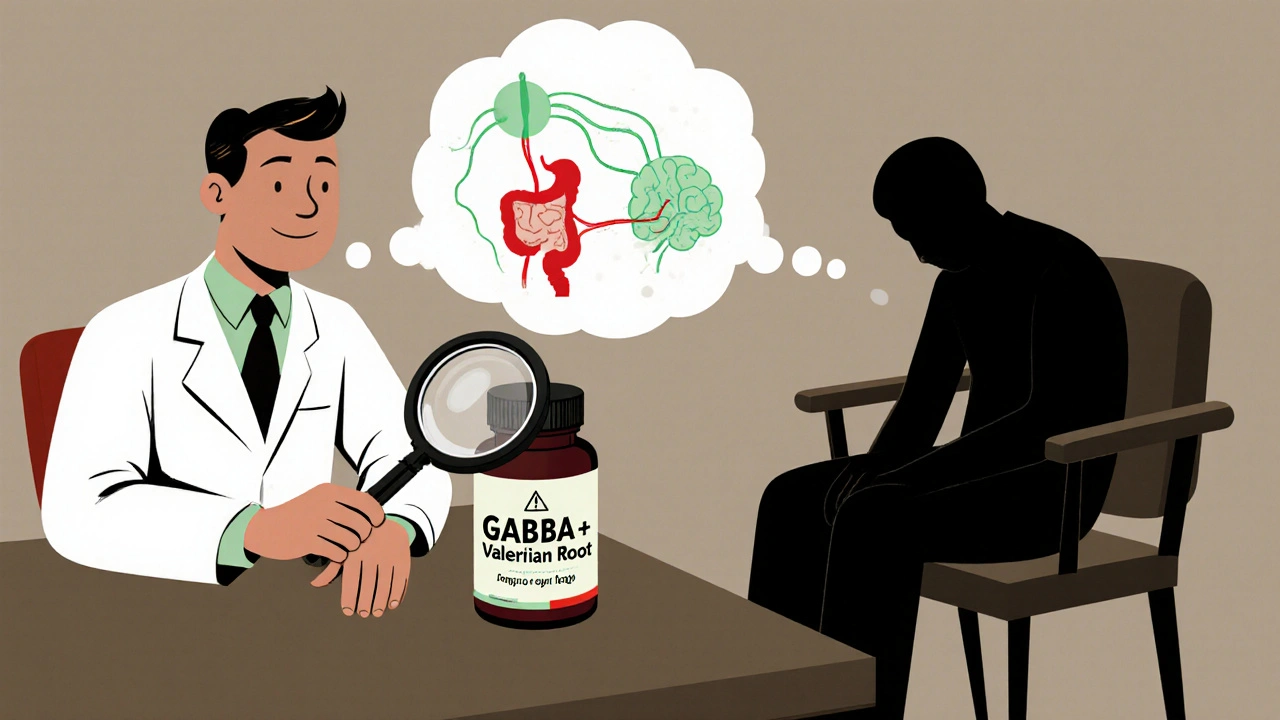
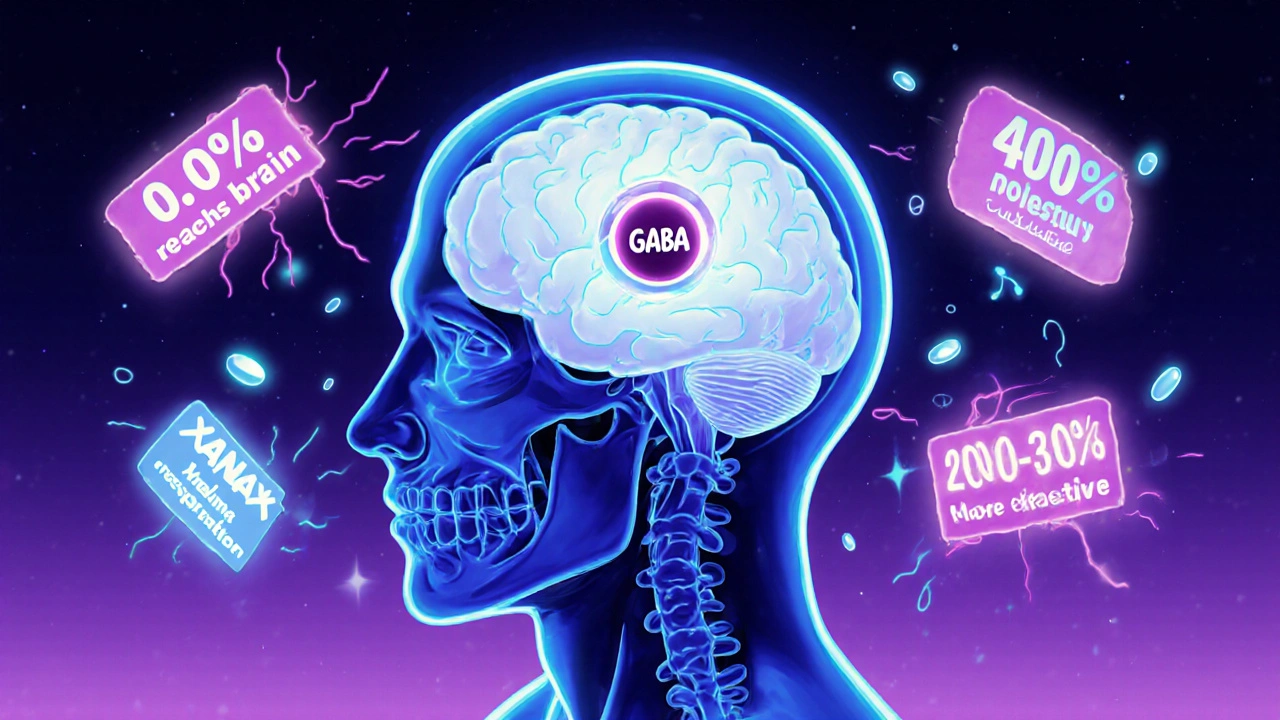
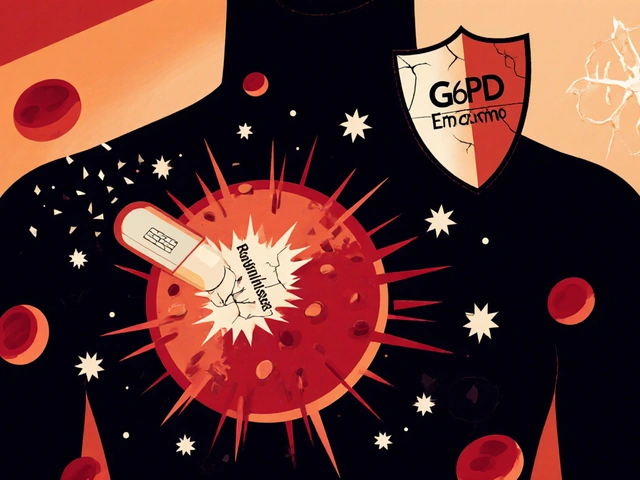

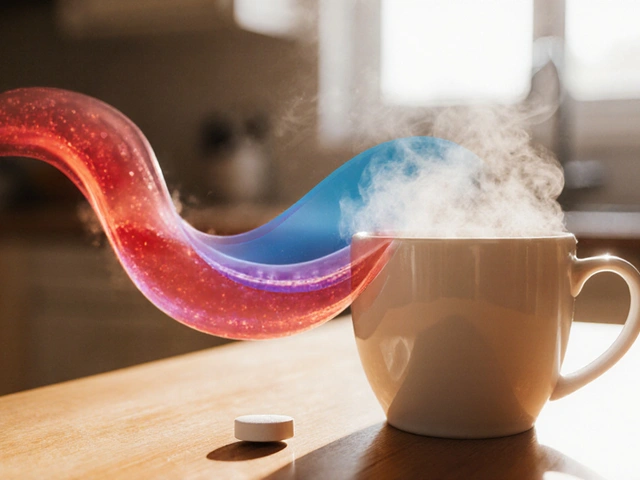
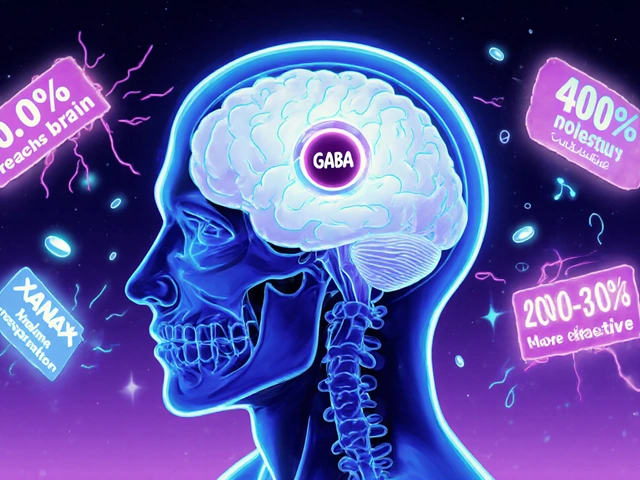

Ankita Sinha
18 November, 2025 . 18:15 PM
I’ve been taking GABA for sleep and just realized I’ve been mixing it with my zolpidem. Not cool. I’m switching to just the sleep med and ditching the supplement. Thanks for the clarity.
Also, why do supplement labels lie so much? 😅
Kenneth Meyer
19 November, 2025 . 06:32 AM
It’s fascinating how the body’s chemistry is so context-dependent. GABA in the brain ≠ GABA in the gut. The real issue isn’t the molecule-it’s the narrative we’ve built around it. We want a pill for calm, so we’ll believe anything that sounds scientific. The placebo effect isn’t weak-it’s the most powerful drug in the supplement aisle.
And yet, if it helps someone sleep without dependency? Maybe that’s not all bad.
Donald Sanchez
21 November, 2025 . 00:33 AM
LMAO so GABA supplements are just glorified water? 😂
And people pay $30 for that??
Meanwhile, phenibut’s on Amazon like it’s candy and no one’s checking the ingredients. I took 1g once and slept for 14 hours then woke up feeling like my brain was wrapped in wet socks. Don’t be that guy.
Also, kava = instant nap mode. Don’t mix with Xanax unless you wanna meet the EMTs.
PS: FDA says 3 cases? Bro, that’s because nobody reports it. I’ve seen 12 people in my reddit group go out cold after ‘GABA blends’.
PPS: 🤡
Abdula'aziz Muhammad Nasir
21 November, 2025 . 19:00 PM
Thank you for this well-researched post. Many in my community take supplements without understanding their pharmacology, and this clarifies a common misconception.
It is not the GABA itself that is dangerous, but the confusion between pure compounds and proprietary blends. I encourage everyone to read the full ingredient list, not just the marketing term on the front.
Also, consulting your physician is not a sign of weakness-it is an act of responsibility. Many of us in Nigeria have seen too many cases of unregulated herbal mixtures causing hospitalizations. Let us not repeat those mistakes.
Stay informed. Stay safe.
Tara Stelluti
23 November, 2025 . 13:14 PM
Okay but who’s actually selling these GABA blends? Who’s making the money off people’s anxiety? 😭
It’s the same people who sold you ‘detox tea’ and ‘brain fog crystals’. This is capitalism preying on sleep-deprived millennials.
I’m not mad, I’m just disappointed.
Also, I took a ‘GABA + Ashwagandha’ pill once and cried for 45 minutes. No joke. My cat left the room.
Someone call the FDA. Or better yet, call my therapist.
Danielle Mazur
25 November, 2025 . 04:30 AM
They’re lying to you. All of them. The FDA, the doctors, the supplement companies. They don’t want you to know that GABA supplements are being used as a front for neurochemical manipulation. Why do you think they’re pushing ‘GABA-C12’? It’s a Trojan horse. The real goal is to normalize brain-altering substances under the guise of ‘natural wellness’.
Next thing you know, they’ll say ‘it’s fine to mix GABA with SSRIs’.
Wake up. This is step one of the chemical control agenda.
They’ve been doing this since the 1950s. Look up MKUltra. Look up the CIA’s drug experiments. This is the same playbook.
Margaret Wilson
26 November, 2025 . 16:52 PM
So let me get this straight - I spent $80 on ‘Zen GABA Max’ and the only thing it did was make my dog look at me like I’m a weirdo?
Also, I thought I was ‘calming my nervous system’ but really I was just paying for a fancy placebo with a side of disappointment.
At least I didn’t mix it with wine. 🍷😂
Still, I’m gonna keep taking it. My therapist says it’s ‘harmless ritual’. And honestly? I need the ritual.
Also, if this is placebo, why do I feel like I just got a hug from a warm blanket? 🤷♀️❤️
william volcoff
27 November, 2025 . 19:03 PM
Interesting how the science is clear but the culture isn’t. We’ve turned self-care into a pharmacology quiz. The real problem isn’t GABA-it’s the pressure to ‘optimize’ every biological function with a pill.
Maybe the answer isn’t more chemistry. Maybe it’s less noise.
Also, I tried GABA once. Felt nothing. Then I walked outside, listened to birds, and slept like a baby. Who knew nature had a GABA receptor?
Still, I get why people reach for the bottle. We’re all just trying to quiet the static.
Freddy Lopez
28 November, 2025 . 20:41 PM
This is one of the clearest summaries I’ve read on the topic. The distinction between pharmacological action and perceived effect is crucial. It’s not just about safety-it’s about epistemology. What do we mean when we say something ‘works’? If a supplement improves sleep through belief, is it less valid than a prescription? Or is the belief itself part of the mechanism?
Perhaps the real value of GABA supplements lies not in neurochemistry, but in the intention behind taking them. A ritual of self-kindness, even if chemically inert.
Either way, label reading remains non-negotiable.
Brad Samuels
29 November, 2025 . 02:35 AM
Reading this made me feel a lot better. I’ve been nervous about my GABA habit since starting my anxiety med. But now I know it’s probably just the placebo-and honestly? If it helps me feel calmer without side effects, I’m not gonna guilt-trip myself.
Still, I’ll check the label. No more ‘calming blends’ from sketchy brands.
And hey-if my brain thinks it’s getting GABA, maybe that’s enough. Sometimes, the mind knows what it needs before the science catches up.
Thanks for the reassurance. 🙏